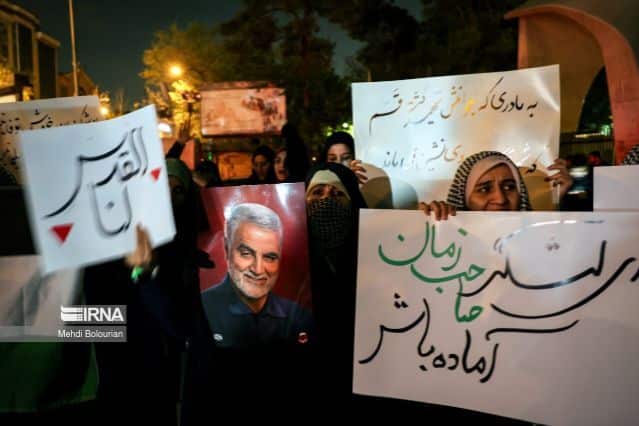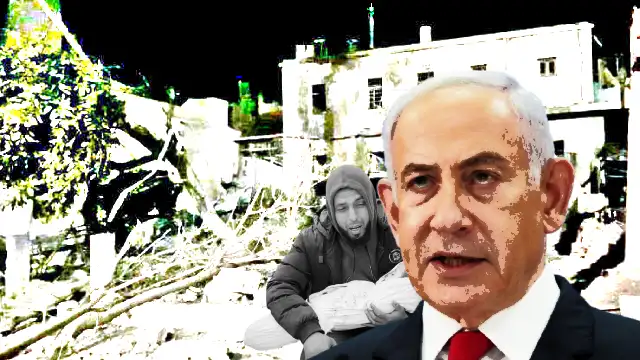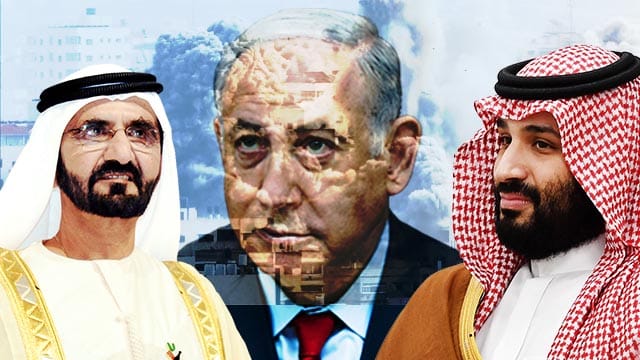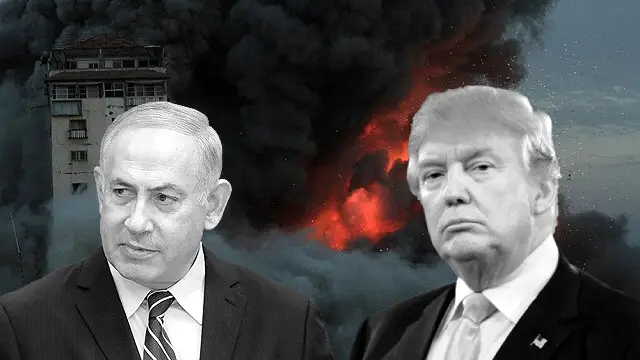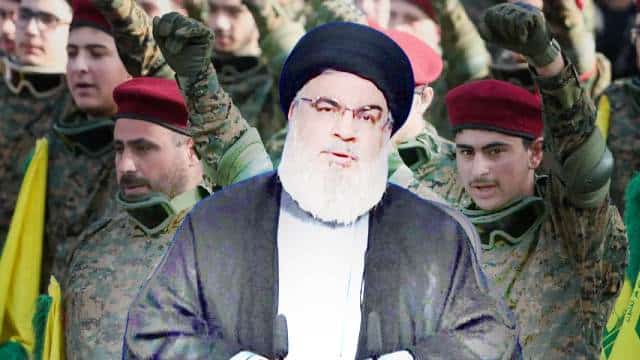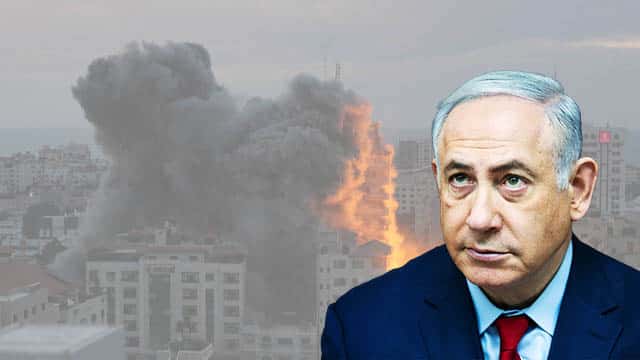Iran’s attack on Israel has split the world into two camps, where the pro-Israel forces are in the minority.
Iran’s targeted missile strikes on Israeli military installations in the occupied Palestinian territories on Saturday, April 13th, have brought a tectonic shift in the regional balance of power. Iran’s attack on Israel also revealed the acute polarisation in the global geopolitical matrix and the people’s opinion.
Iran’s attack on Israel has shocked the US-led collective West. The West hitherto believed that Tehran’s threat to retaliate and avenge the Israeli attack on the consular section of its embassy in Damascus on April 1st, which killed seven, including top Iranian military personnel, was mere rhetoric.
They believed that the maximum Iran could do was take the help of its regional allies like Hezbollah in Lebanon, Hamas in Gaza and Houthis in Yemen to launch a proxy attack on Israel. But later, when Iran started issuing warnings, especially to the US to withdraw its personnel from the occupied territories, the West started panicking, along with the Israelis.
But that’s not all. The major shock to the West came from the fact that a large section of their populations, especially in the US, UK, Canada, France and Germany, are mocking their politicians on social media whenever they express solidarity with Israel.
People of these countries, across faiths, are questioning the pronounced hypocrisy of their politicians who have all the sympathy and love for Israel but turn a blind eye to the atrocities it’s accused of committing in the Gaza Strip, where over 33,000 people, including thousands of children, have been killed since October 7th.
Whenever, western politicians, including US President Joe Biden, Canadian Prime Minister Justin Trudeau, British Prime Minister Rishi Sunak, French President Emmanuel Macron or German Chancellor Olaf Scholz posted their support for Israel on social media, criticising Iran, they were rebuked by the social media users from their countries, accusing them of hypocrisy.
While the West finds itself isolated from the global south over its support for Israel’s genocide, Iran’s attack on Israel has won popular support, especially in the global south.
The US-led collective West has stood behind the Zionist forces, led by Israeli Prime Minister Benjamin Netanyahu, in their genocidal attacks on Gaza. They backed Israel citing it has a “right to defend itself”, following the Operation Al-Aqsa Flood of Palestinian resistance Hamas.
For months, the US-led collective West ignored the call for a ceasefire as the Zionist war machine kept killing children and women and targeting hospitals, schools and churches in the Gaza Strip.
The West’s support bolstered Mr Netanyahu. Acting with sheer impunity, Mr Netanyahu’s government launched simultaneous attacks on Lebanon and Syria. The West didn’t condemn these acts of aggression but supported Israel under the garb of “it has a right to protect itself”.
But Iran’s attack on Israel changed this equation.
Despite calling for affirmative actions, including economic sanctions on Israel and the collective West that supports its genocidal actions, Iran didn’t actively intervene to stop the genocide in Gaza.
Rather, the Lebanese Hezbollah guerrillas and the Yemeni Houthi rebels backed by Tehran carried out the resistance against the Zionist war machine.
But Israel’s attack on the Iranian embassy in Damascus changed the equation. Mr Netanyahu threw a direct challenge to the Iranian government, which is its biggest regional foe.
Iran highlighted Article 51 of the UN Charter, which gives rights to a country an inherent right to self-defence in case it comes under an armed attack until the time the Security Council takes necessary measures, to validate its attack on Israel.
The basic precinct of Iran’s attack on Israel has been that it also has a right to “defend itself” and punish aggressors. As a country’s embassy is considered its sovereign territory, Israel’s attack on the Iranian embassy is shown as an attack on Iran’s sovereignty.
During Iran’s attack on Israel, Tehran’s elite Iranian Revolutionary Guards Corps (IRGC) ensured launching a limited-scale attack targeting only the Israeli military installations used in the April 1st attack.
Several of its missiles dodged Israel’s air defence system to hit the targeted airbase in the Negev Desert. Also, Arad, an area east of Beersheba city in the southern part of occupied Palestine was hit.
Now, even though the West continues to support Israel, Iran’s stand is the most valid one in this context. It has not launched a full-scale war against Israel but merely avenged the April 1st attack. The IRGC said the operation has concluded and warned if Israel attacks Iran, then it will have to suffer serious repercussions.
Before Iran attacked Israel, the US and Israel ensured to garner the support of the rich Arab monarchies that have been their support pillars for decades. On the other hand, Iran also brought two Arab countries to its fold, to limit the scope of any retaliation by the US and Israel.
It’s revealed that during Iran’s attack on Israel, King Abdullah II of Jordan allowed Israel and the US to use the Jordanian airspace to hit Iranian missiles and drones.
Saudi Arabia, another major regional ally of the US, allegedly allowed Israel to carry out surveillance on Iran before its attack. Although Saudi Arabia started normalising its ties with Iran in 2023, under Chinese influence, it still didn’t support Tehran or retain its neutrality.
However, supporting Iran, Kuwait and Qatar closed their airspaces and prohibited the US to use its bases in these countries against Iran, crippling Washington DC’s ability to counter the barrage of missiles hitting the targets in Israel.
The split in the Arab camp is not alone.
There has been a wide polarisation in the global south.
Barring far-right President Javier Milei’s Argentina, most Latin American countries like Brazil, Colombia, Cuba and Venezuela called for ending the escalation in the region, while blaming the US-led West’s support for the Gaza genocide for the spillover of the conflict.
“The support of the US, in practice, for genocide, has ignited the world. Everyone knows how wars start, no one knows how they end. If only the people of Israel were high enough, like their ancestors, to stop the madness of their ruler,” Colombian President Gustavo Petro said.
None of the major African countries have voiced their support for Israel, they called for de-escalation and an end to the bloodshed in the region. Even Egypt, considered close to Israel and the US, maintained neutrality.
Asian giants like China and India also didn’t support Israel or the West in their statements but underscored the need for restraint and de-escalation.
“China calls on relevant parties to remain calm and exercise restraint to avoid further escalation of tensions,” the Chinese Ministry of Foreign Affairs said. China called this round of the conflict a “spillover from Gaza conflict”, indirectly blaming Israel for it.
“We call for immediate de-escalation, exercise of restraint, stepping back from violence and return to the path of diplomacy,” India’s Ministry of External Affairs said in a statement. India has close ties with Israel but didn’t support its action against Iran, its traditional ally.
Malaysian Prime Minister Anwar Ibrahim blamed Israel for Iran’s latest strikes. “The war between Iran and Israel that started after the Zionist Israeli government attacked the Iranian embassy, which is against international law, is a consequence of one’s actions. When you break the law you invite a reaction,” Ibrahim said.
Pakistan blamed the failure of diplomacy behind Iran’s attack on Israel. A few months ago, Iran launched missile attacks on Pakistani territories targeting terrorist camps.
“These (the conflict) also underline the ‘grave’ implications in cases where the UN Security Council is unable to fulfil its responsibilities of maintaining international peace and security,” the Pakistani foreign ministry said.
“It’s now critically urgent to stabilise the situation and restore peace. We call on all parties to exercise utmost restraint,” the ministry added.
Russia expressed its concern over the worsening situation. “We express our extreme concern over another dangerous escalation in the region,” Russia’s foreign ministry said in a statement.
“We have repeatedly warned that the numerous unresolved crises in the Middle East, primarily in the Palestinian-Israeli conflict zone, which are often fuelled by irresponsible provocative actions, will lead to an increase in tension,” the ministry’s statement added while calling all parties to “exercise restraint”.
Even the UN didn’t extend any support to Israel. Especially after it killed scores of its aid workers in Gaza.
“The Middle East is on the brink. The people of the region are confronting a real danger of a devastating full-scale conflict. Now is the time to defuse and de-escalate,” UN Secretary-General Antonio Guterres told a Security Council meeting called on Sunday in response to Iran’s attack on Israel.
As Israel didn’t find any support in the global south, where its role in the Gaza genocide has been widely criticised and opposed, it became a major problem for Biden’s administration to stoke support in favour of Israel.
Although the US has announced that it will support Israel in the face of any Iranian attacks, it’s reported that Mr Biden has refused to support Mr Netanyahu in any counter-offensive against Iran. This leaves Israel in trouble, as without western backing it can’t combat Iran.
For politicians in the US and the UK, there are two-fold problems. On the one hand, they are facing growing discontent at home over their support for Israel’s genocidal attacks on Gaza, on the other hand, they can’t oppose Israel and afford to lose the huge donations that they receive from the Israeli lobbyist groups, like the American Israel Public Affairs Committee (AIPAC) in the US.
As both the US and the UK will have crucial elections—presidential and general—later this year, it has become important for the politicians in these countries to receive the Zionist lobby’s funds and support during the elections.
However, in the UK, the ruling Conservatives under Mr Sunak, and its opponents, the Labour under Keith Starmer, suffered ignominious defeats in the Rochdale by-elections where pro-Palestine George Galloway won.
The by-elections exhibited people’s discontent with the British administration’s pro-Zionist policies. British politics has been highly polarised over support for Palestine in recent months.
For Mr Biden, re-election later this year seems problematic. However, if he draws the US to another conflict in the Middle East, it will create major problems for its ailing economy. Thus, despite rhetoric-mongering, the US is trying to distance itself from Israel until the latter can show it some real profits expected from the conflict.
In a nutshell, Iran’s attack on Israel not only stunned the world powers but also ensured that there remains a lacuna and none of the parties could openly support Israel in launching any counter-offensive.

